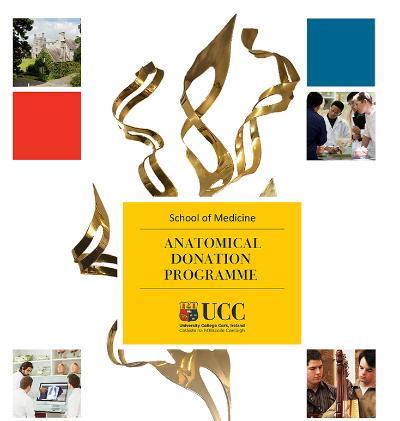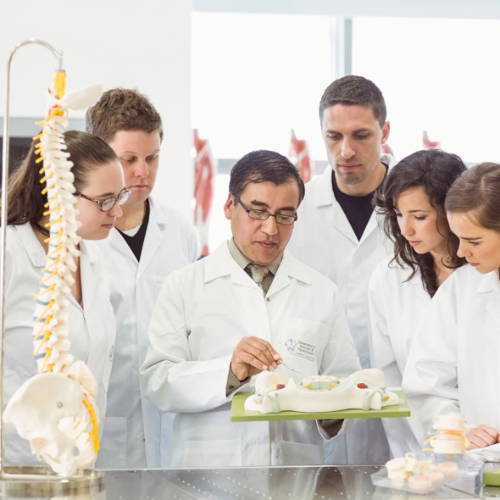In This Section
- Home
- Staff Profiles & Phone Book
- About the Department
- Welcome from Head of Department of Anatomy and Neuroscience
- A History of the Department
- A history of the Department; The early years to the 1980s
- A history of the Department; The move from the Windle Building to BSI and WGB
- UCC Professors of Anatomy and Heads of Department
- The development of the UCC HUB
- Current students, recent research graduates and awards
- Useful Links
- Study Anatomy
- Study Neuroscience
- Research
- Neural circuitry underlying Neuropsychiatric and Neurological Disorders 2026
- Neurogastroenterology 2026
- Developmental Neuroscience and Regeneration 2026
- Neurodegeneration 2026
- Neuroinflammation 2026
- Neuroprotection and Therapeutics 2026
- Neuroproteomics and Molecular Psychiatry 2026
- Anatomy Education Research 2026
- Research Facilities 2026
- Postgraduate Research Programmes 2026
- UCC Anatomical Donations
- Biosciences Imaging Centre
- BSc Medical and Health Sciences
- News & Events
- News Archive 2024
- News Archive 2023
- News Archive 2022
- News Archive 2021
- News Archive 2020
- News Archive 2019
- News Archive 2018
- News archive 2017
- News Archive 2016
- News Archive2015
- News Archive 2014
- News Archive 2013
- News Archive 2012
- News Archive 2011
- BRAIN AWARENESS WEEK 2023
- Department Events and Conferences
- Seminar series 2019_2020
- photo galleries
- Narrowing the void Conference 2023
- Photos of BSc Medical and Health Sciences Mentoring launch 2022
- International Women's Day 2023
- 2023 BRIGHT FUTURES - Celebrating our researchers
- 2023 UCC Futures - Future Ageing & Brain Sciences
- Recent Graduations July 2023
- Anatomy and Neuroscience Top 100 Anatomy Physiology 2023
- BRAIN AWARENESS WEEK 2023 FUN AND GAMES EVENT
- Medical and Health Sciences First year class 2023
- 2023 Brain Awareness week Scientific discussion photo gallery
- World Anatomy Day 2023
- BSc MHS MENTORING PROGRAMME 2023
- BSc Medical and Health Sciences Graduation 2023
- BSc Neuroscience Graduation Photo Gallery 2023
- Dr Kathy Quane Nov 2023
- THANKSGIVING PHOTOS 2012
- Photo Gallery: Society of Translational Medicine Careers Fair 2023
- Photo Gallery:2023 TRAIN AWARDS
- Photo Gallery:2024 Creative Week St Joseph's NS
- Photo Gallery: Department of Anatomy and Neuroscience Thanksgiving Service 2024
- Photo Gallery: Professor Aideen Sullivan farewell party
- Photo Gallery: Irish Pain Society Annual Scientific Meeting Cork 2023
- Photo Gallery: 2024 Medical and Health Sciences Graduation
- Photo Gallery: Medical and Health Sciences Meet and Greet 2024
- Photo Gallery: 2024 BSC NEUROSCIENCE Graduation
- Photo Gallery: 2025 INTERNATIONAL WOMEN'S DAY
- Photo Gallery: 2025 BSc Neuroscience class and staff
- Photo Gallery: 2025 BRAIN CONNECTIONS
- BSc Neuroscience Graduation Photo Gallery 2025
- World Anatomy Day 2025
- UCC Learning and Teaching Showcase 2025
- MSc Human Anatomy Graduation Photo Gallery 2025
- Narrowing the Void Conference 2023
- Department of Anatomy and Neuroscience Contact Us
Anatomical Donations and Procedures
What is the donation procedure?
If you are interested in donating your body to the Department of Anatomy and Neuroscience in University College Cork, please contact us and we will send you the relevant application forms and information.
What are donated bodies used for?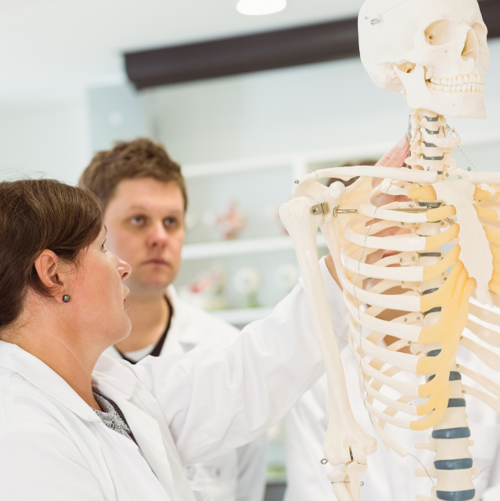
- Anatomical Examination:
Most bodies are used for teaching purposes. Studying real human bodies is an invaluable way of learning anatomy for medical, dental, neuroscience, and other healthcare students.
- Education, training, and professional development:
Qualified health professionals benefit hugely from the opportunity to develop their surgical and medical skills as their careers progress. The department runs many courses which help to advance surgical knowledge and develop techniques which can lead to improved treatment for patients. Engineers who design medical implants and other devices used to treat injuries or diseases also benefit from a strong understanding of human anatomy.
- Research into disorders of the human body:
Your body may be used for research purposes to advance our understanding of human anatomy, to investigate the biological basis of complex diseases and to seek to develop new treatments.
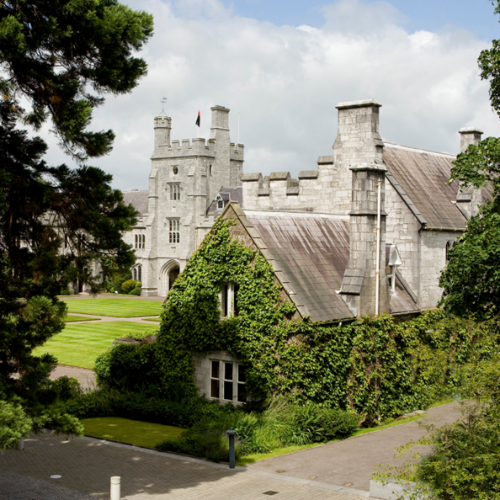
How long will the University keep my body?
On the consent form, you will choose how long you wish your body to remain in UCC. There are two options:
Option 1. Permanent Donation: Your body will remain with the Department indefinitely. Next of kin will not receive back any remains.
Option 2. Three Year Donation:
Your body will remain in the Department for a maximum of three years, after which your remains will be released back to your next of kin. In choosing this option, you may also opt to allow a part or parts of your body to be retained for teaching purposes. Any such parts will be kept by the Department indefinitely and will not be returned to the next of kin, they will be cremated or buried at a later date and placed in the University Plot.
The period of study in this case can vary from as short as eight weeks to the full three years. It is not possible to predict the exact length of stay for any individual in advance.
What other details are required on the consent forms?
In addition to routine personal information and an optional medical history, you will be asked for permission to take images of your remains. These images may be used in teaching or included in research papers. You will not be identifiable in these images, and they will never be for public use.
Lastly, you will decide what should happen to your remains when the study period is over. Donors may choose one of the following options:
- Cremation:
If you choose to be cremated, the University will provide transport of your remains to The Island Crematorium in Ringaskiddy, Co. Cork, and an officiant and other incidentals. Ashes will be returned to the next of kin in a standard container. Ornamental urns may be provided by families if they wish.
- Burial in the UCC plot:
The University has a plot in St Mary’s Cemetery, Curraghkippane, Co. Cork. If you wish to be buried in the UCC plot, the University will provide transport of your remains to the cemetery, an officiant, and other incidentals. Headstones are not provided by the University, but families may apply to place a headstone on the grave if they wish.
- Burial in a private family plot:
If you wish to be buried in a private plot, the University will provide transport of your remains to the cemetery. All other costs are met by your estate or next of kin.
You will also be asked for permission to transfer your body to another university if UCC cannot accept your body. This would be entirely at the discretion of the the other university.
You will need a witness to sign the form with you. The witness should be the person who will take responsiblity for carrying out these wishes and who will accept your remains back when the study period is finished.
What responsibilities does my witness/next of kin have?
On your death your witness/next of kin should forward a copy of the Medical Certificate of Cause of Death paperwork (MCCD) or the full Death Notification Form (DNF part I and II) to:
Department of Anatomy and Neuroscience,
Room 2.33 Western Gateway Building,
University College Cork,
Western Road,
Cork.
It is a legal requirement for us to have received this paperwork to allow the donation to take place. If we do not receive this documentation we will be obliged to immediately release your body without any use being made of it.
Your death must be registered, and a copy of your Death Certificate must also be sent us at the above address.
Your next of kin/estate is responsible for providing a solid coffin, and for any religious or secular services held. The Department of Anatomy and Neuroscience UCC will take care of arrangements for removing your body to the University.
What is the procedure after my death?
A family member/friend, or person such as a doctor or nurse, should let the Department of Anatomy and Neuroscience know about the death as soon as possible. Your family and friends may arrange a funeral service, but it is very important that the University receives your body within 48 hours of death. Contact details may be found on the back of this booklet.
Occasionally, we agree to receive donations from outside Munster, if, for example, someone has relocated since donating. In such cases any costs incurred for additional transport will be covered by the family of the deceased.
What happens to my remains afterwards?
Permanent Donation:
If you decide to leave your body to UCC permanently, your remains will not be released back to your next of kin. They will be cremated at a later date and the ashes placed in the University plot. Next of kin/relatives will not be notified of the cremation, and there will be no individual grave to visit. If you believe your family will want to have your remains returned to them, please choose the next option.
Three Year Donation:
Your next of kin will be contacted by letter within three years, informing them that your body is ready to be released. They may then choose a suitable date for your remains to be buried or cremated, according to the choice you have made in your donation consent form. Relatives and friends are welcome to attend burials or cremations and a short memorial service.
Your coffin will be held in storage during the study period, and your remains will be placed back into this coffin for burial or cremation, whether you choose permanent or three year donation.
Once a body has been received by the University it will not be possible to arrange a viewing under any circumstances.
Will UCC definitely accept my body?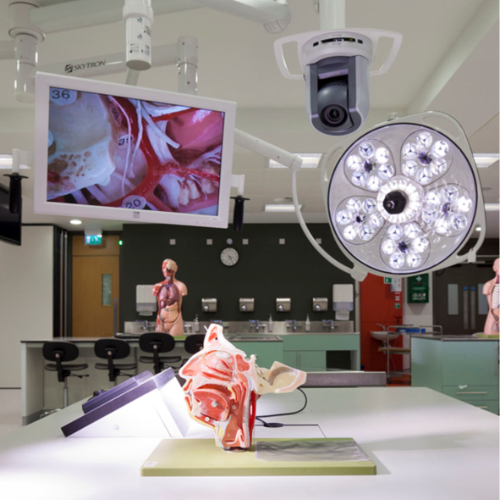
Unfortunately, it is not always possible to accept donors’ bodies. At the time of death there may be medical circumstances which result in your body being unsuitable for donation. You and your next of kin are encouraged to have alternative arrangements decided on in case this occurs.
Some reasons that a body may not be accepted include:
- Organ donation
- Post-mortem/ autopsy
- More than 48 hours since death
- Blood borne illnesses or reportable infections, for example HIV, Hepatitis B, Covid-19, or hospital superbugs
- Very recent surgery
- Extremely under or overweight
- Building closure/essential maintenance works
You must be over 18 years to donate your body, we have no upper age limit.
What must I do now to register as a body donor?
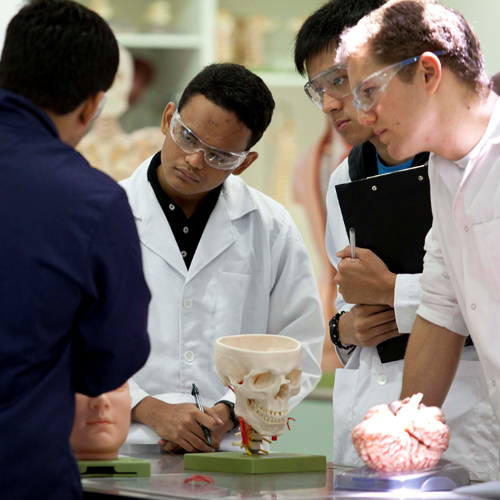
- If you are content to proceed with the donation process, please contact the Department of Anatomy and Neuroscience in University College Cork and we will forward you the relevant concent forms and information.
- Complete the donation consent form and return it to the Department of Anatomy and Neuroscience using the address on the form. We will acknowledge receipt of your completed forms in writing.
- The consent form must be signed by the person donating (another person cannot sign on their behalf) and by one witness. The witness should be the person who will liaise with the University at the time of death and when your remains are released for burial or cremation. Donors and witnesses must be aged 18 years or over.
- We cannot accept verbal instructions or instructions given in a will as consent to donate. In the event you change your mind, your consent may be withdrawn at any time by notifying the Department in writing. Should your contact details or the details of your next of kin change, simply send the new information in writing.
- We encourage all donors to discuss their decision with relatives and friends. This helps to ensure that families are aware of the process and that your wishes will be carried out correctly.
GDPR Statement
Any personal data which you provide to the Department of Anatomy and Neuroscience will be treated with the highest standards of security and confidentiality, in accordance both with Irish and European Data Protection legislation and with codes of ethics and practice of the Irish Medical Council.
Legal basis for processing your data
In order to administer the anatomical donation programme, we need to collect and keep personal information about you, your witness, and occasionally about your health.
We will only ask for and keep information that is necessary. We will explain the need for any information we request if you are not sure why it is needed.
Access to donor records is restricted to ensure that they are used only to the extent necessary to enable the administrator and technical staff to perform their tasks for the proper functioning of the Department. Your personal information may also be made available to the Irish Medical Council and the Inspector of Anatomy at their request, to facilitate the carrying out of their regulatory duties.
Managing your information
The Department should be notified of any relevant changes to your personal information. This would include information such as new contact details for you or your witness. This allows us to ensure that your personal data is as accurate as possible.
How long will we keep your information?
If you withdraw your consent, we will remove all personal data from our files with the exception of your name and date of birth, which will be held indefinitely. This includes the personal information of witnesses and GPs, etc.
If you enter the University as an anatomical donor, all of your personal information will be held indefinitely. The personal information of your witness (and GP, if supplied) will also be held indefinitely.
Your rights
You have the right to access all the personal information held about you by the Department. You can make a formal written request to the Department and receive a copy of your records. These will be provided to you within thirty days of the request being received.
You have other rights under data protection regulations in relation to transfer of data to another country, the right to rectification or erasure, restriction of processing, objection to processing and data portability. You also have the right to lodge a complaint with the Data Protection Commissioner.
You are not obliged to share any personal information with us; however please note that if you choose not to do so we will be unable to register you as an anatomical donor.
Department of Anatomy and Neuroscience
Anatamaíocht agus Néareolaíocht
Contact us
Room 2.33, 2nd Floor, Western Gateway Building, University College, Cork, Ireland

